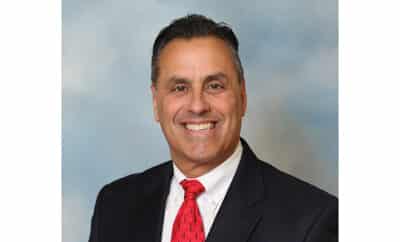7 Note-Taking Strategies For High School Students
 Presented By Jim Power
Presented By Jim Power
Article By Dr. Raymond J Huntington, Co-Founder of Huntington Learning Center
A lot changes when students transition into high school.
One skill that becomes more important than ever is that of note-taking. “In high school, students are expected to become proficient note-takers, and those notes will become essential study tools that they use to review material for quizzes and tests,” says Jim Power of the Newark, DE Huntington Learning Center.
“Note-taking should augment student learning and help students recall difficult concepts more easily and remember what teachers teach. Our goal when working with students is to share some of the basics that will help them retain what they learn and study smarter.”
Mr. Power shares these seven strategies for effective note-taking with parents and their teens:
1. Record meaningful facts:
The goal of note-taking should be to summarize the most important parts of what a teacher shares during a lecture: dates, names, places, formulas or anything else that is emphasized. It’s good to write lots of notes, but teens should focus on recording points that seem important, recurring themes or other details that are critical to their overall understanding.
2. Group ideas: Lots of “raw” notes may not make studying any easier for a student. It’s a good idea to leave space on the left or right-hand side of the notebook for condensing and recapping concepts. During class or afterward, teens can write down any main ideas on the side of their notes, or at a minimum, subtitles of what was discussed.
3. Think quality over quantity: New high school students tend to think good note-taking means recording everything the teacher says. It’s a common challenge for students: focusing so intently on taking notes that they forget to listen and process information enough to be thoughtful about what they record in their notebooks. Big picture: notes should concentrate on what the teacher wants the class to know. That may mean pencils aren’t moving the entire class period, and that’s fine.
4. Follow along in the book if appropriate:
When the teacher focuses on a particular chapter or topic, it can be helpful later on to have page numbers to refer to for clarification or more information. Ask the teacher at the beginning of the period if they will be referencing textbook material.
5. Date and title notes:
This minor thing can make a huge difference: labeling notes will be helpful when studying for a test. Students should always put the date, class name and topic(s) discussed at the top of their notes.
6. Highlight the clues: Teachers usually point out information that students need to know. It’s a smart idea to highlight these cues in notes. Students should listen for phrases like the most important part, for example, in summary, as a review and the only exception to this is. These should trigger careful note-taking and Students should notate these important points with an asterisk, symbol, or highlighter.
7. Say it another way: One of the most important parts of note-taking is not the note-taking itself – it’s the reflection process. Students should write down complex points in their own words so they are easier to understand later. This helps information “click” and reinforces long-term retention.
Mr. Power reminds parents that taking notes is not a natural skill – it must be taught and practiced. “Organized students tend to take cleaner notes, but note-taking is meant to solidify knowledge and make studying easier and more effective. That doesn’t come easily to many students,” he says. Huntington helps students develop their study skills, including their note-taking abilities. For more information, contact Mr. Power at (302) 737-1150.
About Huntington
Huntington is the leader in tutoring and test prep. Its certified tutors provide individualized instruction in reading, phonics, writing, study skills, elementary and middle school math, Algebra through Calculus, Chemistry, and other sciences. It preps for the SAT and ACT, as well as state and standardized exams. Huntington programs develop the skills, confidence, and motivation to help students succeed and meet the needs of Common Core State Standards. Founded in 1977, Huntington’s mission is to give every student the best education possible.
Learn how Huntington can help at www.huntingtonhelps.com
Dr. Raymond J. Huntington is the co-founder of Huntington Learning Center, which has helped children achieve success in school for over 35 years.For more information about how Huntington can help your child, call 1-800-CAN-LEARN.
Jim Power is the Executive Director of the Huntington Learning Center in Newark, 34 Liberty Plaza, Kirkwood Highway, Newark, DE 19711. For more information or to schedule a consultation
at the Newark location call 302-737-1150 or visit www.newark.huntingtonlearning.com
©2017 Huntington Mark, LLC. Huntington Learning Center®, the three-leaf logo, and 1 800 CAN LEARN® are registered trademarks of Huntington Mark, LLC. Each franchised Huntington Learning Center is operated under a franchise agreement with Huntington Learning Centers, Inc.
Headshot by Shannon Adelson of Adelson Media, Inc.





